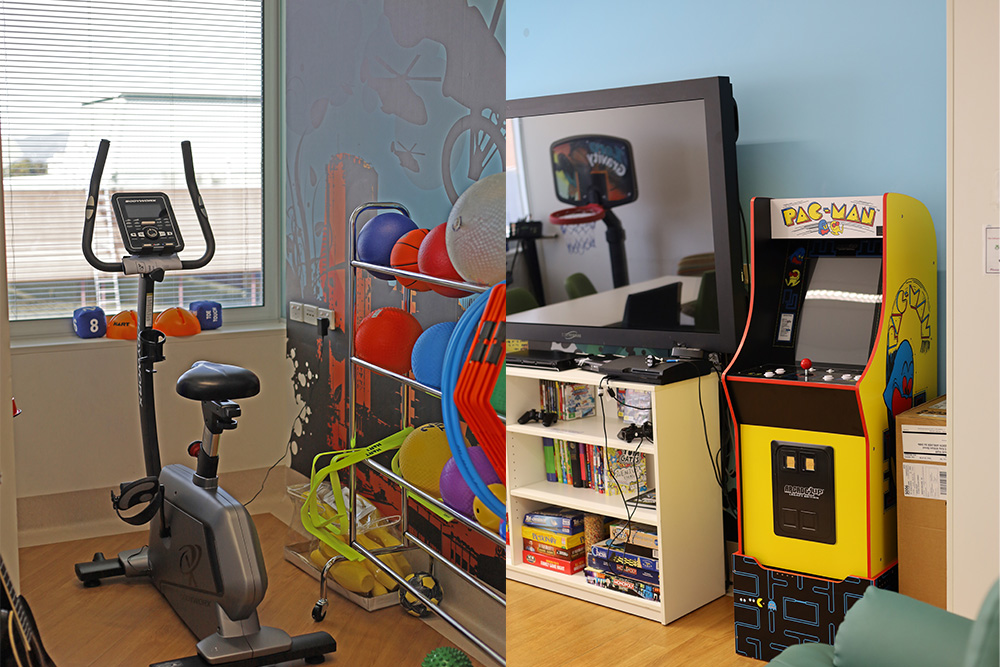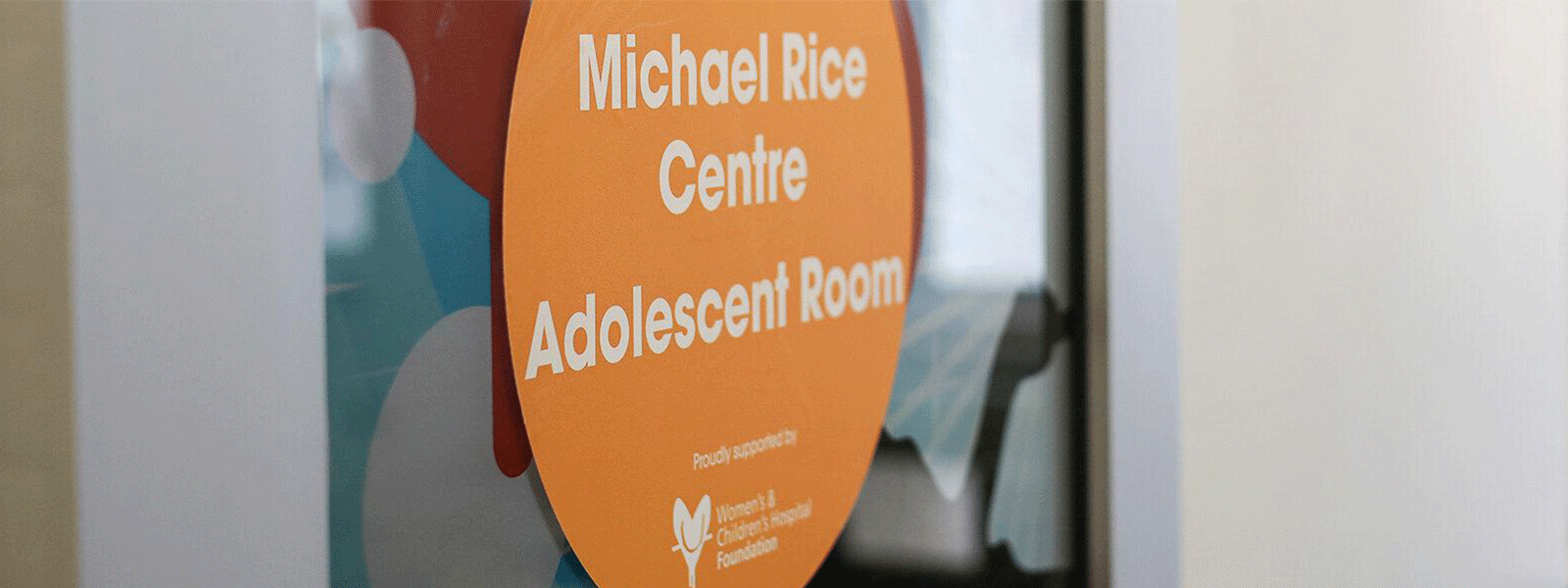Teenage patients undergoing cancer treatment at the Women’s and Children’s Hospital now have an upgraded activity space within the Michael Rice Centre Adolescent Room.
The Women’s and Children’s Health Network physiotherapy team explains, “Children and adolescents diagnosed with cancer can experience negative physiological and psychosocial impacts directly related to their diagnosis and its treatment, which can impair their quality of life.”
“Access to additional therapies such as physical activity, exercise, music and Play Therapy are vitally important for children whilst undergoing traditional cancer treatments.”
Without dedicated space and equipment for exercise previously, maintaining physical activity was a challenge for patients.

The physiotherapy team says, “We sought funding to redesign the room in order to increase usability in a more contemporary model, as well as optimising opportunities for physical activity, music and play.”
In its previous form, the room was under-utilised because it lacked a defined purpose and appropriate equipment.
Now, a functional, contemporary area has been created in which therapy can thrive and adolescent consumers can regain practical ownership. It is set out in three zones – a music zone, entertainment zone and sports zone.
It is hoped that these updates will support the care of patients undergoing cancer treatment.
The team says, “There is a growing body of research evidence to support the role of physical activity in the reduction of the adverse effects of cancer treatment.
Paediatric studies demonstrate the beneficial effects of physical activity during and after cancer treatment.”
“Improvement in cardiovascular fitness, fatigue levels, response to treatment and quality of life have all been shown to occur in patients undertaking physical activity programs.”
“Maintaining physical activity has also been directly linked to improvement in anxiety and depressive symptoms, improved functional outcomes and reduction in fatigue.”




